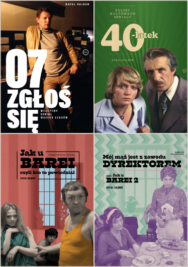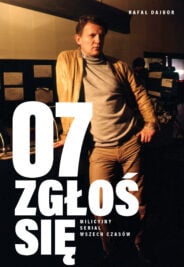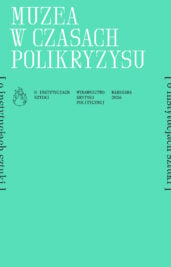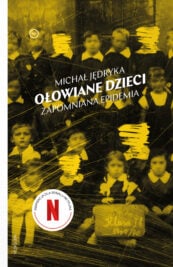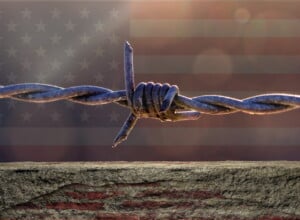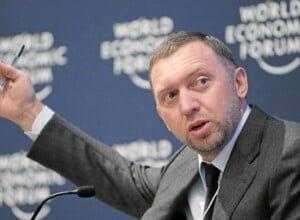Mamy awarię newslettera, więc dziś Krytyczny Newsletter Wschodni Pauliny Siegień wyjątkowo nie trafił do was mejlem, ale możecie go przeczytać na stronie. Newsletter naprawiamy, więc trzymajcie kciuki, żeby w przyszłym tygodniu wszystko wróciło do normy. A jeśli jeszcze nie subskrybujecie naszych newsletterów, możecie zapisać się na nie tutaj.
**
Polska buduje warte miliardy płoty na granicach z Białorusią i Rosją, a politycy bez żenady uzasadniają te wydatki walką z agentami i infiltracją obcych wywiadów. To argumenty w duchu „ciemny lud to kupi”, bo strach to coś więcej niż polityczne złoto, to święty Graal populistów wszelkiej maści, także tych maskujących się pod liberałów. Nie to, że uwielbiam generała Kukułę, ale jego niemądre słowa, w których rozmarzył się o wojnie z Rosją, to nie jest przecież nowość w naszym publicznym dyskursie. W końcu obecny premier zrobił z hasła „przedwojnie” swoje główne paliwo do uprawiania polityki, w kraju i za granicą.
W ramach kolejnego moralnego wzmożenia media i politycy próbowali niedawno kręcić aferę wokół dwóch tysięcy wiz wydanych obywatelom Rosji już po pełnoskalowej agresji na Ukrainę. Takie dane znaleziono w raporcie NIK-u, który badał procedury wizowe w MSZ za czasów Zjednoczonej Prawicy.
Słuchaj podcastu „Blok Wschodni”:
Mnie zaskoczyło co najwyżej to, że kogokolwiek naprawdę dziwi, że Polska wydawała wizy Rosjanom. Ludzie pokroju Błaszczaka i Kamińskiego próbowali nam sprzedawać fikcję o zamkniętych ufortyfikowanych granicach, a tę wersję płynnie przejęli po nich Kosiniak-Kamysz, Tusk i Siemoniak. Ale prawda jest taka, że te granice są zamknięte tylko dla ludzi o innym kolorze skóry. Migrację z Rosji czy Białorusi Polska przyjmowała chętnie i nie potrzeba było nawet na ten temat publicznej debaty.
Żyjemy więc w Polsce w kilku, niekiedy sprzecznych, fikcjach. A świat jest często prostszy, zwłaszcza świat cyfrowy. Białoruska Nasza Niwa opisuje, w jaki sposób białoruskie służby działają za granicą. Wystarczy Telegram, w którym na grupach i czatach organizują się białoruskie diaspory i organizacje działające na emigracji. Wystarczy do nich dołączyć i sączyć po cichutku propagandę albo jak pewien „Siergiej” – porozsyłać w nich ogłoszenie o możliwości dorobienia.
Tak się składa, że chętnych na jednorazowe płatne zadanie szukał np. w przededniu świętowanego przez Białorusinów na emigracji, a w kraju zakazanego Dnia Woli, który wypada w marcu. Trzeba było zrobić trochę zdjęć i nagrań wideo z okolicznościowych imprez i demonstracji.
„Siergiejów” jest więcej i noszą różne imiona. Niejaki „Alex” skupił się na białoruskiej społeczności w Litwie. Aktywizował się na czatach tamtejszej diaspory np. przed napadem na białoruski sklep Kropka. Na jego fasadzie w lipcu tego roku nieznani sprawcy napisali po litewsku: „Wracajcie do domu, białoruskie świnie”.
Naoglądaliśmy się filmów o Jamesie Bondzie, zachwyca nas Tom Cruise jako Etan Hunt (#mniezachwyca i się tego nie wstydzę), niejedna z nas pewnie obejrzała wszystkie sezony serialu Zawód: Amerykanin. Ale tajne misje obcych, wrogich wywiadów to nie tylko spektakularne wybuchy, zwisanie z klifu i zmultiplikowane tożsamości. Dzisiaj służby rosyjskie i białoruskie po prostu rekrutują ludzi w sieci i mogą być to ludzie, którym nigdy by do głowy nie przyszło, że będą pracować dla KGB lub FSB, a na emigrację wyruszyli z czystymi intencjami.
Emigrancka dola do słodkich nie należy, więc zawsze można złowić kogoś, kto jest w kryzysie i akurat potrzebuje tych paru dodatkowych stów za dwie godzinki pracy w weekend i podesłanie zdjęć, np. z parkingu litewskiego MSZ. Nie trzeba już szkolonych latami agentów, nie trzeba długotrwałego werbowania. Dzisiaj do zrobienia z człowieka szpiega wystarczą proste cyfrowe aplikacje i gig-economy, „ekonomia fuchy” traktowana jako norma.
To duże wyzwanie dla agencji kontrwywiadowczych i dla samych diaspor, które są ich zresztą doskonale świadome. Ale to wcale nie znaczy, że jeśli się odgrodzimy płotami i zbudujemy rozległe fortyfikacje, to będziemy mieć święty spokój. Budowanie społecznej odporności na zagrożenia nie polega ani na budowaniu barier – bardziej wyobrażonych niż realnych – ani na straszeniu wojną.
W cyklu „Rosja zabrania wszystkiego” władze właśnie wzięły na celownik quadrobing. To ciekawe hobby, łączące w sobie zabawę i aktywność fizyczną, polegające na przemieszczaniu się na czterech „łapach” i naśladowaniu ruchów zwierząt.
W przypadku dzieci, młodzieży, ale i zapalonych quadroberów w wieku dorosłym, dochodzą do tego stylizacje – opaska w kształcie zwierzęcych uszu, maska albo pomalowana twarz i ogony przypięte sami wiecie gdzie. W Rosji quadrobing wywołuje niepokój, a osoby, które go uprawiają, stają się celem szykan, zorganizowanego hejtu, a nawet otwartej agresji.
Na pomoc agresorom postanowiła ruszyć rosyjska Duma Państwowa, która już pracuje nad aktem prawnym, który po prostu zabroni zajmować się quadrobingiem. Zwłaszcza że politycy dostrzegli w nim niebezpieczną ideologię i wrogą propagandę, skierowaną głównie do dzieci i młodzieży. Teraz deputowani zastanawiają się, jakie sankcje zastosować. Wśród propozycji była nawet odpowiedzialność karna nałożona na rodziców, których dzieci przyczepią sobie kocie uszy, by poskakać na czterech łapkach.
Zastępczyni przewodniczącego dumskiej komisji ds. oświaty Jana Lantratowa uważa, że konieczna jest kara za promowanie quadrobingu w mediach, filmach i internecie. Nowe hobby, które urasta do młodzieżowej subkultury, uważa za poważny problem, bo według niej „niektóre nastolatki odmawiają zdejmowania masek przez wiele dni, szczekają na lekcjach, a nawet gryzą kolegów z klasy, załatwiają się w windach i na klatkach schodowych” (rosyjskie media niezależne nie ustaliły takich przypadków). Razem z ekspertami deputowana planuje wyjaśnić, „kto i dlaczego wprowadza modę na zdegenerowane zachowanie”.
Quadrobing urósł nawet do sprawy o randze międzynarodowej. Podczas spotkania Wspólnoty Niepodległych Państw 8 października minister spraw zagranicznych Rosji Siergiej Ławrow pytał delegację z Armenii, czy tam też mają problem z quadroberami. Niewątpliwie jest to temat numer jeden, zwłaszcza dla Armenii, która liże rany po przegranej wojnie o Górski Karabach.
Redakcja Ukraińskiej Prawdy, dużego portalu newsowego i opiniotwórczego, w środę 9 października zdecydowała się opublikować oświadczenie, w którym mowa jest o systemowych naciskach na redaktorów i dziennikarzy ze strony biura prezydenta Ukrainy. „Chcielibyśmy zwrócić uwagę naszych kolegów, partnerów i organizacji międzynarodowych na ciągłą i systematyczną presję wywieraną przez Biuro Prezydenta na redakcję i poszczególnych dziennikarzy Ukraińskiej Prawdy. Pragniemy przypomnieć, że wartościami Ukraińskiej Prawdy od momentu jej założenia w 2000 roku były niezależność redakcyjna, obiektywizm i możliwość swobodnego głoszenia prawdy”– pisze redakcja, a w dalszej części tekstu wymienia działania ludzi z otoczenia prezydenta i samego prezydenta, które uderzają w pracę magazynu.
Urzędnicy z biura prezydenta mieli bowiem dostać zakaz rozmawiania z dziennikarzami Ukraińskiej Prawdy. Wywierane są także naciski na reklamodawców, by rezygnowali ze współpracy z portalem. Tekst przypomina również konfrontację Zełenskiego i dziennikarza UP Romana Krawca, do której doszło podczas konferencji prasowej w sierpniu. Podczas publicznego forum prezydent nerwowo zareagował na pytanie o osoby z jego ekipy. Zełenski zarzucił przy okazji całej redakcji, że jest stronnicza i pracuje na zlecenie (nie uściślił czyje).
Ta sytuacja to kolejny sygnał o narastającym kryzysie politycznym w Ukrainie, który mogłoby rozładować pozbawienie wpływów Andrija Jermaka, człowieka pełniącego funkcję szefa biura prezydenta, uważanego za szarą eminencję Bankowej i głównego decydenta w kluczowych obszarach polityki ukraińskiej. Osobowość Jermaka jest źródłem wielu wewnętrznych napięć w Ukrainie, już dawno w debacie publicznej padały głosy, że skoncentrował w swoich rękach zbyt dużą władzę, a metody, do których się ucieka, niewiele mają wspólnego z transparentnością i demokracją. Polityczną frustrację pogłębia brak wyborów, które nie mogą się odbyć, dopóki w Ukrainie trwa stan wojenny.
Nic jednak nie wskazuje na to, by Zełenski był gotowy na zdecydowane kroki, które mogłyby oczyścić atmosferę.


 Wspieraj
Wspieraj 

 Wspieraj
Wspieraj  Wydawnictwo
Wydawnictwo 
 Przekaż
Przekaż 

